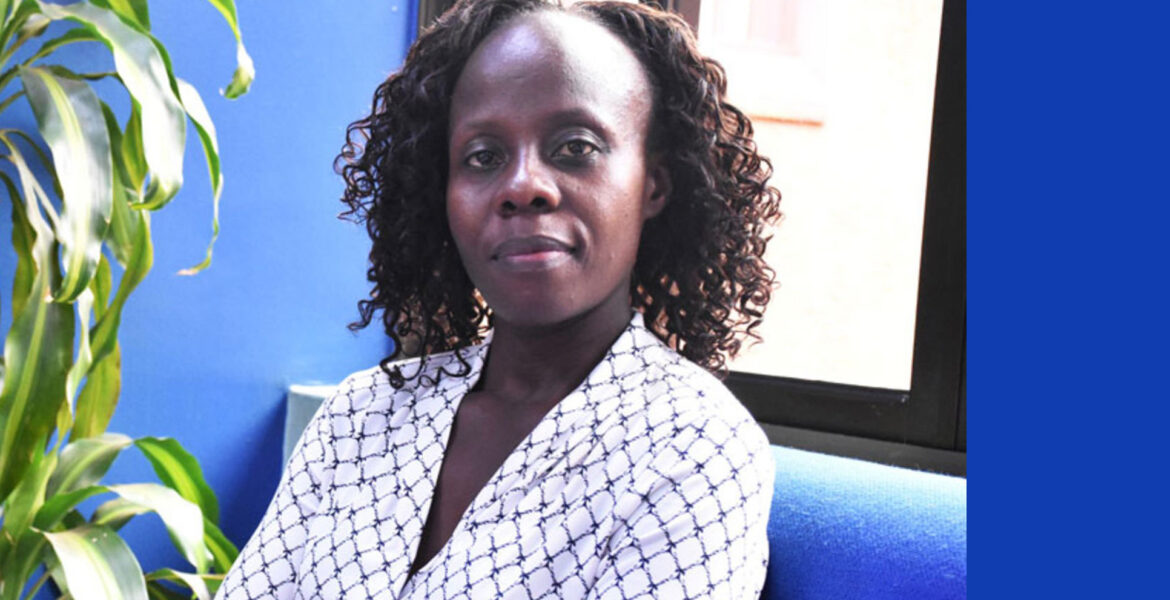So many times, we have all heard the statement “The world is changing so fast”, but in fact, it is truly happening before our eyes. From the point of a traditional African classroom, black boards and chalk have been discarded for big screens. White boards are pinned on classroom walls.
There is no doubt that technology is changing our learning process, and children need to be acquainted with this technology at a young age in order to cope with the emerging trends. If you have heard about A.I, you now know that it’s all here, and we cannot stop it anymore.
However, the big question is how do we inclusively prepare everyone, especially when technology is made to favor normal functioning humans?
At the front of this revolution is one woman, Elizabeth Rwabu. Last year, she received the Award for Outstanding Alum in Education Award 2023 by the US Mission Alumni Impact Awards. Crossing 2 decades in the industry, Elizabeth has impacted over 2000 students during her time in service. “I want to see learners that learn beyond their boundaries and appreciate culture and diversity, ready to create startups or find employment in a variety of countries,” she says.
Currently a professional fellow at the FULBRIGHT teacher exchanges program, Elizabeth is on a quest of identifying schools and teachers around Africa and starting up ICT clubs for children ranging from 8 to 16 years. “I first saw the possibility of making learning accessible and adaptable for learners with disabilities in 2008,” she says, and has gone on to start 8 ICT clubs in Ghana, Uganda, Kenya, Tanzania and supporting adaptation. In her vision, accessibility of content for learners with hearing and visual impairment is priority, and Elizabeth has set up these resources for over 20 schools in Africa and works to set up even more.
Even though she has gained great success already, her goal is the same today as it was years ago; ‘To see children reason with artificial intelligence’. It is this pursuit that has pushed her to connect, collaborate and communicate with children in the different parts of the world and expand this network into different countries to give teachers and learners an opportunity to learn beyond the four walls. “This journey fuels me to find connections for collaborations to continue my drive in Contributing to SDG,” she says.
As the world becomes a global village, so will education. “We have already started the global connection of schools, teachers and learners in the use of ICTs. I’m focusing on finding funding to scale up this project and support more teachers and learners to create inclusive schools that embrace technology”.
Elizabeth implores parents, governments and learners to embrace the new innovations and support the cause to help young generations build their communities. When I ask whether the governments and systems in place have been supportive, she agrees “Yes, the local governments are supportive. Especially because they want to see their communities develop”, but there is more work to get done.” She advises that communities have to emphasize on creating a teaching and learning process that supports learning for all, including learners with disabilities.
Elizabeth takes us back to 2008 when she pioneered her first tech project in Uganda called ‘Enabling the visually impaired to enjoy school using computers’ at Iganga SS. This same project earned her an award and went on to cause awareness for people with disabilities using technology. Over the years, many studies have demonstrated the positivity of assistive technology on improving the learning processes for people living with impairments. For example, according to the Royal National Institute for the Blind, the internet is one of the most significant communication developments since the invention of Braille. This kind of technology goes a long way in alleviating deficits by compensating for learners’ skills. Elizabeth is pleased to see how most countries in East Africa are embracing the fact that technology is an integral part for learners with disabilities.
Technology can be used to influence various aspects of our society. Elizabeth reflects on mentoring over 198 learners at the JDO-RWABU RESOURCE CENTER as one of her proud achievements this year. The learners at this center got an award (CIENNA Sustainability Award 2023) for bringing awareness to climate change by using technology through a project called ‘Climate Change Action Is Now or We Sink With its Negative Effects.’
All together, we are living in a world in which technology is evolving and learners access gadgets in schools or at their homes. Elizabeth cautions that parents and instructors need to provide guidance and instruction in the use of these gadgets and technology to build resilient and responsible citizens.
To power this movement, JDO – Rwabu Resource center was launched last year in Mukono municipality where it is located. With a capacity to serve over 198 students this development center is training community children aged 8-14 years. “Our goal is to give a chance to students who wouldn’t have been able to interact and learn about technology in a meaningful way. Our learners are learning and interacting with children from around the world,” she says.

